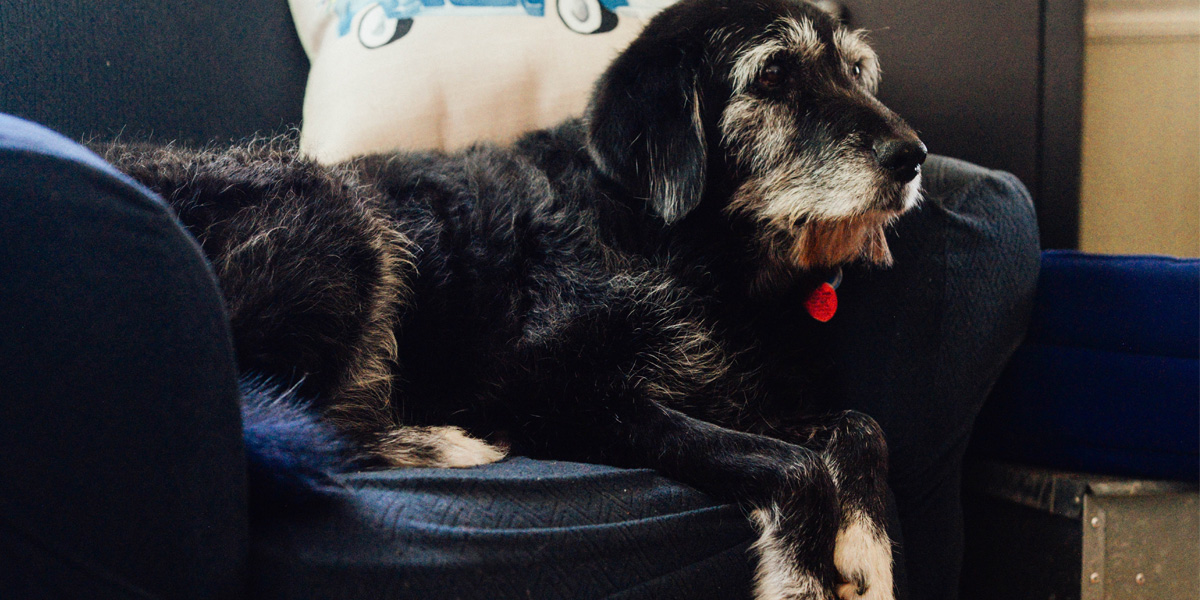Why Do Senior Dogs Start To Go Blind?
Doctor of Veterinary Medicine

While efforts are made to answer all questions as quickly as possible, if an immediate answer is required or if your pet is in need of urgent or emergency care, contact your pet's veterinarian immediately.
Doctor of Veterinary Medicine

You will receive an answer from Dr. Lindsay and our vet/tech team as soon as possible, usually the same day.
All answers are provided for informational or educational purposes only, and are intended to be a supplement to, and not a substitute for, the expertise and professional judgment of your pet's veterinarian.
It may be necessary to consult your pet's veterinarian regarding the applicability of any opinions or recommendations with respect to your pet's symptoms or medical condition.
CloseDoctor of Veterinary Medicine

An error has occurred, please reload the page and try again.
CloseWhile efforts are made to answer all questions as quickly as possible, if an immediate answer is required or if your pet is in need of urgent or emergency care, contact your pet's veterinarian immediately.
There is no answer related to your question

Why Do Senior Dogs Start To Go Blind?
As dogs get older, they become more likely to suffer from vision loss. Partial vision loss, changes to the outward appearance of the eye, and blindness can often be attributed to aging as well as age-related chronic health issues like diabetes.
In honor of National Senior Pet Month, learn what to expect if your senior dog is experiencing vision loss and what you can do to help them adapt.
Why Do Senior Dogs Go Blind?
Changes in your dog’s vision and the outward appearance of their eye can be a normal sign of aging. Nuclear sclerosis, in which the lens hardens and becomes slightly cloudy or bluish, affects 50% of dogs over age 9, and virtually 100% of dogs over 13 years old. Nuclear sclerosis can cause mild visual impairment but will not cause significant vision loss or blindness.
One of the most common causes of blindness in senior dogs is cataracts, a buildup of proteins over the eye’s lens that causes a whitish, hazy appearance. Cataracts may affect one or both eyes, and can cause partial vision loss or complete blindness. Some dogs are genetically predisposed to developing cataracts, but this condition can affect any breed. Sometimes they appear suddenly, other times they happen gradually, and may be caused by an injury, diabetes, or may seem to have no known cause.
Diabetes is one of the most common causes of cataracts. In fact, around 75% of dogs with diabetes will experience complete blindness in both eyes within nine months of diagnosis. Blood glucose can damage the blood vessels in and around the eyes, and may also leave cloudy buildup behind the lens, causing the hazy appearance of cataracts.
Cataracts, especially in dogs with diabetes, tend to develop rapidly. Glucose can draw water into the lens and potentially cause a rupture, which can cause retinal detachment or glaucoma (nerve damage), leading to complete blindness.
Glaucoma is another common cause of vision loss in middle-aged to senior dogs. Normally, the front part of the eye contains a fluid called aqueous humor between the lens and the cornea. This fluid nourishes the ocular tissues and maintains the eye’s spherical shape. In dogs with glaucoma, this fluid does not drain properly and builds up, leading to swelling and increased pressure on the optic nerves. Around 40% of the time, dogs with glaucoma will lose eyesight in the affected eye.
Glaucoma affects approximately 1.7% of dogs in North America. It can be hereditary, or may be caused by an infection, trauma to the eye, or a tumor.
Can Blindness in Senior Dogs Be Treated?
Any change in the appearance of your dog’s eye, or signs that your dog is losing their vision should be checked by your veterinarian as soon as possible, even if you suspect normal age-related nuclear sclerosis. Eye problems can present with similar symptoms at first, but early diagnosis can increase your dog’s chances of regaining their vision or can help slow the progression of eye disease.
Disease of the eye are often painful and tend to escalate quickly. It’s crucial to seek immediate veterinary care when you notice any eye-related symptoms. In dogs with early signs of glaucoma, medication can reduce eye pressure and prevent damage to the optic nerve. Cataracts can be removed surgically to restore vision.
Blindness in Senior Dogs and Quality of Life
Partial or complete loss of sight is a major change in your dog’s life, but it doesn’t have to stop them from enjoying their senior years. Dogs who lose their sight gradually tend to have the easiest time adapting, but even those who suffer from sudden blindness will learn to depend on their other senses to get around. Learn how to care for a blind dog and watch how quickly your dog gains confidence with a little help from their favorite humans.
 Swipe
Swipe



















